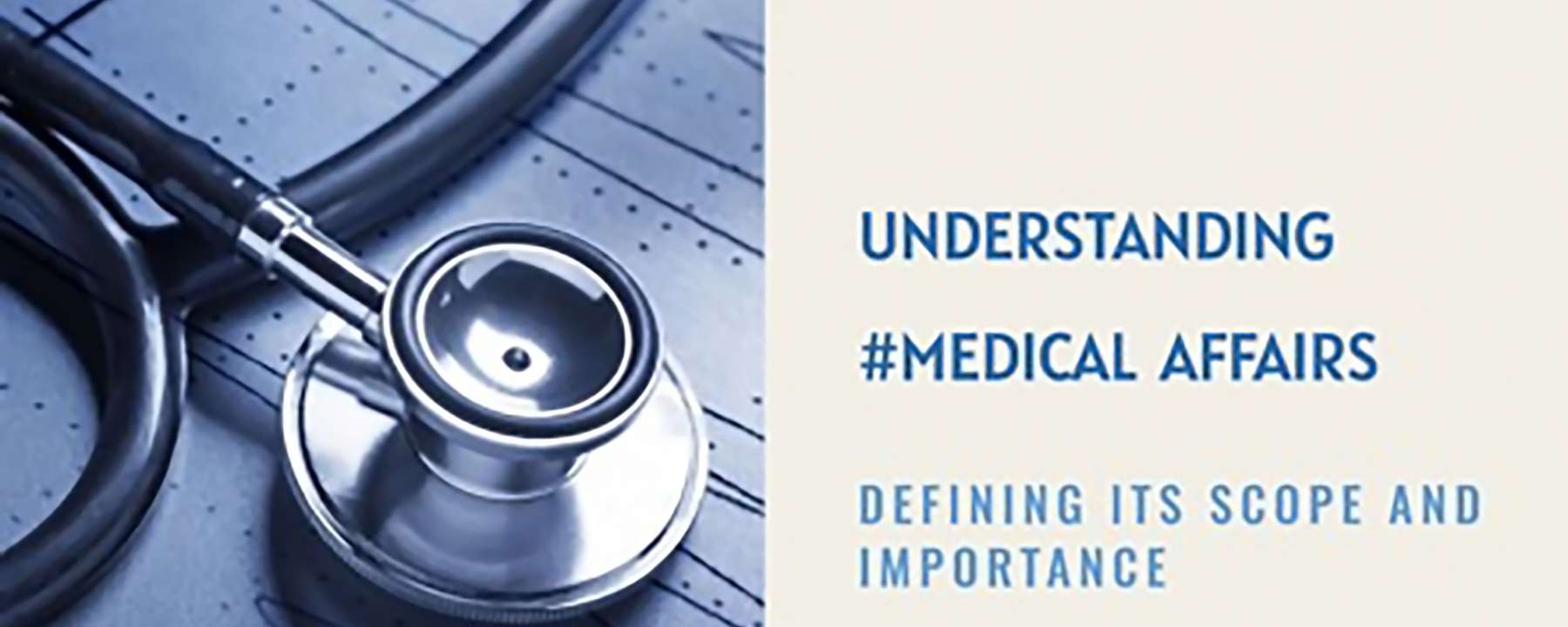
A Comprehensive Guide: Unveiling the Role of Medical Affairs in Modern Healthcare (part I)
Introduction to Medical Affairs: Understanding Its Definition, Scope, and Importance in the Healthcare Industry
In the ever-changing landscape of healthcare, the role of Medical Affairs has become increasingly vital. They serve as a bridge between pharmaceutical companies, healthcare professionals, regulatory bodies, and patients, ensuring that medical products are safe, effective, and used appropriately. This article aims to provide an overview of Medical Affairs, including its definition, scope, and its significant relevance within the healthcare sector.
Definition and Scope
Medical Affairs encompass a multifaceted set of responsibilities within pharmaceutical, biotechnology, and medical device companies. At its core, it focuses on scientific communication aimed at exchanging information about products with healthcare professionals, academics, and regulatory bodies. This exchange is crucial to ensure that healthcare providers have accurate and up-to-date information to make informed decisions about patient care.

The scope of Medical Affairs is broad and encompasses various functions, including:
- Medical Science Liaison (MSL) Activities: MSLs serve as the primary point of contact between the company and healthcare professionals. They engage in scientific discussions, provide medical education, and gather field information to inform internal stakeholders.
- Medical Information and Communication: Medical Affairs teams are responsible for providing accurate and timely information about products to healthcare professionals, patients, and internal stakeholders. This includes responding to medical inquiries, developing educational materials, and organizing scientific events.
- Research and Clinical Development: Medical Affairs play a critical role in designing and conducting clinical trials to generate data supporting the safety and efficacy of products. They collaborate closely with clinical development teams and regulatory agencies to ensure that studies meet ethical and regulatory standards.
- Support for Regulatory Affairs: Medical Affairs professionals work closely with regulatory affairs teams to navigate the complex regulatory landscape. They provide scientific expertise and data to support regulatory submissions and interactions with health authorities.
- Health Economics and Outcomes Research (HEOR): Medical Affairs teams conduct studies to assess the economic and clinical value of products. This includes health economic modeling, real-world evidence generation, and outcomes research to demonstrate the impact of interventions on patient outcomes and healthcare costs.
- Medical Strategy and Planning: Medical Affairs develop and execute strategic plans to support product launch, lifecycle management, and market access. They collaborate with cross-functional teams to align medical activities with business objectives and patient needs.

Importance in the Healthcare Industry
The importance of Medical Affairs in the healthcare industry cannot be understated. Here are several key reasons why Medical Affairs are indispensable:
- Patient Safety and Care: Medical Affairs play a crucial role in ensuring patient safety by providing accurate and comprehensive information about products. By facilitating scientific exchange and education, Medical Affairs help healthcare professionals make informed treatment decisions that optimize patient outcomes.
- Regulatory Compliance: In an increasingly complex regulatory environment, Medical Affairs ensure compliance with regulatory requirements and guidelines. By providing scientific expertise and supporting regulatory submissions, Medical Affairs help companies navigate the regulatory landscape and obtain approvals for new products.
- Building Trust and Credibility: Medical Affairs serve as a reliable source of medical information for healthcare professionals, patients, and other stakeholders. By fostering transparent and evidence-based communication, Medical Affairs build trust and credibility, enhancing the company's reputation and its products.
- Driving Innovation and Evidence Generation: Medical Affairs play a critical role in driving innovation by generating scientific evidence to support the development and marketing of new products. Through clinical research, outcomes studies, and real-world evidence, Medical Affairs contribute to the advancement of medical knowledge and the improvement of patient care.
- Optimizing Market Access and Reimbursement: Medical Affairs collaborate closely with market access and reimbursement teams to demonstrate the value of products and secure favorable reimbursement decisions. By generating health economic data and outcomes research, Medical Affairs help companies overcome access barriers and ensure patient access to innovative therapies.

In conclusion, Medical Affairs are an essential function within the healthcare industry, encompassing a wide range of activities aimed at advancing medical science, ensuring patient safety, and optimizing healthcare outcomes. By facilitating scientific exchange, providing medical education, and generating evidence to support product value, Medical Affairs play a vital role in driving innovation and improving patient care. As the healthcare landscape continues to evolve, the importance of Medical Affairs will only continue to grow, shaping the future of healthcare delivery and innovation.
At Pro Pharma Research Organization, we specialize in Medical Affairs services, including medical information services, clinical trial support, regulatory affairs support, among others. Contact us to access more information and discover how we can help your company.
Publication date: March 2024
Author: Pro Pharma Research Organization Team